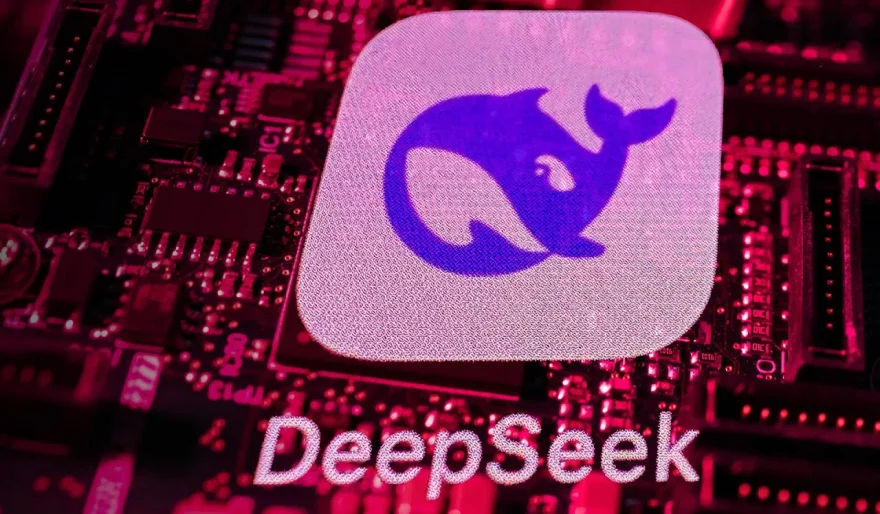Stay Ahead of the Curve
Latest AI news, expert analysis, bold opinions, and key trends — delivered to your inbox.
DeepSeek R1 Integration: Microsoft’s Boldest (or Dumbest) AI Move Yet?
7 min read Microsoft just integrated DeepSeek R1 into Azure—an AI model under investigation for allegedly using OpenAI’s data without permission. Strategic move or ethical nightmare? The industry is watching. Should Microsoft have waited? January 30, 2025 20:46
"Microsoft has made a bold move—integrating DeepSeek R1, a reasoning model developed by Chinese startup DeepSeek, into its Azure AI Foundry and GitHub model catalog. This decision comes with both opportunities and challenges, raising questions about AI competition, data security, and international collaboration."
But with ongoing concerns about DeepSeek R1’s data practices and potential intellectual property issues, is this a strategic expansion or a risk that could backfire? Let’s break down what’s happening, the key arguments on both sides, and what it means for the future of AI.
1. Microsoft’s Strategic Move: Expanding AI Offerings.
First, let’s look at Microsoft’s reasoning. DeepSeek R1 is designed to be highly efficient, performing complex reasoning tasks while using fewer computational resources. This makes it attractive for companies looking to integrate AI without requiring high-end infrastructure.
With AI development rapidly advancing, Microsoft’s decision to include DeepSeek R1 can be seen as a way to expand its AI ecosystem beyond OpenAI. By diversifying its AI partnerships, Microsoft reduces its reliance on any single provider, fostering a more competitive and flexible environment for businesses and developers.
Key Points Supporting This Move:
- More AI Options: Businesses and developers now have additional AI tools that could be cost-effective.
- Diversification: Microsoft avoids overdependence on OpenAI, ensuring long-term AI stability.
- Market Impact: A model that performs well with lower computational costs can shift AI economics, reducing reliance on expensive hardware like Nvidia’s GPUs.
2. The Data Use Controversy: Ethical Concerns and Investigations.
However, not everyone is convinced this is a good idea. Reports suggest that DeepSeek may have used OpenAI’s proprietary data without authorization to train or enhance its model. Microsoft and OpenAI are currently investigating these claims, raising concerns about intellectual property rights and ethical AI development.
If true, this could set a dangerous precedent for AI development, where companies use unapproved data to build competing models. On the other hand, DeepSeek has not been formally accused of wrongdoing, and these concerns remain under investigation.
Key Concerns Against This Move:
- Intellectual Property Risks: If DeepSeek used OpenAI’s data improperly, it could undermine fair AI competition.
- Trust and Transparency: Developers need confidence in how AI models are trained and whether ethical practices are followed.
- Ongoing Investigations: Microsoft’s decision to proceed despite these concerns has raised questions about its due diligence.
3. Security and Privacy: The Geopolitical Angle.
Another key issue is data security. DeepSeek’s servers are based in China, and some worry this could create privacy risks, particularly for U.S. companies using the model. Microsoft has stated that DeepSeek R1 has undergone rigorous security evaluations before being added to Azure, but concerns remain about compliance with international data protection laws.
For companies in highly regulated industries, the question is whether using a model with Chinese infrastructure aligns with their security policies. Others argue that with proper safeguards in place, these risks can be mitigated, and AI development should not be hindered by geopolitical tensions.
Key Perspectives:
- Security Risks: Storing data in China raises concerns about regulatory compliance and potential data access by foreign governments.
- Microsoft’s Assurance: The company insists DeepSeek R1 meets security standards and has undergone thorough safety checks.
- Global AI Development: Some argue that AI should be seen as a collaborative effort, not restricted by national boundaries.
4. Public and Industry Reactions: A Divided Opinion.
Reactions to Microsoft’s move have been mixed. Some in the tech community see this as an exciting step toward innovation, providing more choices for developers and reducing AI costs. Others worry that potential data security issues and ethical concerns have not been fully addressed.
Supportive Reactions:
- More Competition: Additional AI models mean a more competitive market and better pricing.
- Innovation Boost: DeepSeek R1’s efficiency could lead to new AI applications and services.
- Strategic Move: This could reduce Microsoft’s dependency on OpenAI, ensuring a more diverse AI future.
Critical Reactions:
- Unresolved Data Issues: The OpenAI controversy raises questions about DeepSeek’s data sources.
- Privacy Concerns: Security risks related to data storage in China remain a major factor.
- Regulatory Uncertainty: The situation could lead to legal or political challenges in the future.
Neutral Reactions:
- Wait and See Approach: Some industry experts argue that Microsoft’s move could be beneficial if investigations confirm DeepSeek’s compliance with ethical AI standards.
- Call for Better AI Regulations: Many believe this highlights the need for clear global standards on AI training data and transparency.
5. What This Means for the Future of AI.
Microsoft’s decision to integrate DeepSeek R1 could signal a shift in how AI companies collaborate and compete. It also raises important discussions about AI ethics, security, and the role of regulation in an increasingly globalized AI market.
Whether this integration proves to be a success or a misstep depends on how the investigations unfold and how well Microsoft ensures transparency and security in its AI partnerships.
Closing Thoughts: Balancing Innovation and Risk.
At the heart of this debate is a fundamental question: How should AI companies balance innovation with ethical responsibility? Should Microsoft have waited until investigations were complete, or is this just part of staying ahead in a highly competitive industry?
What do you think? Is DeepSeek R1’s integration into Azure a step forward for AI, or does it raise more concerns than benefits? Let me know in the comments.



















 AI Agents
AI Agents